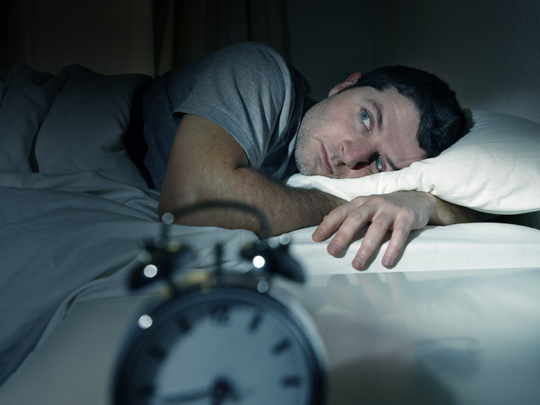
Abu Dhabi: An increasing number of residents across the UAE are presenting with sleep disorders in the wake of the coronavoirus outbreak, as they battle with stress related to their personal, professional and mental health.
In particular, doctors have noted a clear uptick in the number of people complaining of insomnia marked by poor quality sleep or an inability to fall, and stay, asleep.
“During the outbreak, people have been facing unpredictable, stressful situations that create stress and anxiety. Coupled with a change in their daily routines during the stay-home period and an increase in screen time with most work moving online, the changes have led to a rise in sleep disturbances,” Dr Rania Zain Eldin, respiratory specialist at Burjeel Hospital Abu Dhabi.
“Nearly 30 to 40 per cent of my patients these days present with sleep disorders, compared to just 10 to 15 per cent before the coronavirus outbreak,” she added.
Dr Sandeep Pargi, pulmonology specialist at Aster Hospital, Mankhool, cited a similar increase in patient numbers.
“On a daily basis, I see at least four to five patients with sleep disorders these days, up from just one patient a day before the pandemic. Most of these people are working professionals aged between 30 to 40 years,” he said.
Indeed, it is people of working age who have faced some of the biggest upheavals brought about by the COVID-19 outbreak. They were used to full, busy lives that often included school drop-offs and shopping. With the implementation of work-from-home and social distancing, activity levels dropped.
“Added to this, there is stress about job insecurity and financial constraints, which by their very nature, create a lot of anxiety. People are also worried about contracting the coronavirus. Such anxiety does not help sleep, and neither does the additional screen time people have adopted as they work and study from home. Finally, people are also getting much less exposure to sunlight, which helps regulate the circadian rhythm,” Dr Zain Eldin said.
That the increase in sleep disorders is a result of the COVID-19 outbreak is also clear.
“In general, the patients I see suffer from obstructive sleep apnoea, which is essentially [a lifestyle disease]. But these days, the sleep disorder I encounter most commonly is insomnia,” she added.
Dr Pargi said he sees an equal number of patients with sleep apnoea and insomnia.
“According to me, the most important worry is mental health and I am seeing an increasing trend in disorders related to mental health,” he added.
While medication can be one way of dealing with insomnia, the doctors suggested lifestyle changes to counter the sleeplessness and poor quality sleep most people are suffering from.
“It is important to maintain a healthy routine that includes waking up and going to bed at the same time. Daily physical activity is also essential, and it is best to avoid naps during the day if one is unable to sleep at night,” Dr Zain Eldin advised.
Screens should be avoided an hour or two before bedtime, and it is advisable to relax adequately with a shower or some light reading.
“Try to avoid working out close to bedtime, and do eat a healthy diet,” Dr Pargi recommended.
Tips on getting proper sleep
Maintain a daily routine, including a regular bedtime. Wake up at roughly the same time every day.
Get about an hour of physical activity every day.
Avoid napping during the day.
Try to go outdoors with the proper precautions in order to get some exposure to the sun.
Shower before bed, and relax with some light reading and deep breathing exercises.
Prepare the room for sleep, and avoid other activities in bed during the day.
Eat a healthy, balanced diet.
Avoid too much caffeine, and caffeinated beverages in the evening.
Reduce screen time as much as possible, and put away devices two hours before bedtime.








